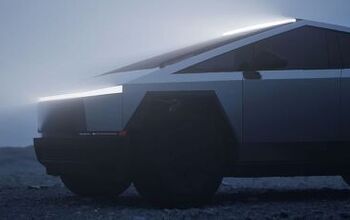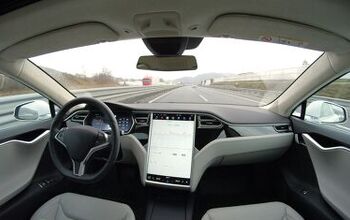Big Three Go Long On SUV, Truck Production in North America

Detroit automakers may be betting high-profit SUVs and trucks are a better fit for their domestic plants as those automakers shift production away from cars to make room for larger, high-margin vehicles.
Ford and Fiat Chrysler Automobiles will largely shift production of their cars to Mexico and bring more trucks and SUVs to North American facilities, according to their contracts with the United Auto Workers, Automotive News reported.
The report consolidates production planning schedules included in UAW contracts with domestic automakers, which shows automakers’ plans to move some of their cars to Mexico or overseas. Of the Big Three, General Motors will sell the most domestically produced cars in North America, including the Malibu, Impala, Sonic, Bolt and Volt, although the small-car plant recently announced a slowing production schedule. Ford will still produce the Mustang and Fusion at its Flat Rock plant in Michigan.
The shift represents a significant departure for the automakers who moved production of cars into the U.S. after 2000 to insulate themselves from massive SUV slowdowns due to rising fuel costs.
According to Ford’s contract with the UAW, production of the slow-selling C-Max hybrid and Focus will head to Mexico in favor of a new truck (likely Ranger) and SUV (likely Bronco) at its Wayne, Michigan facility. Union workers at that plant voted overwhelmingly in favor of the four-year contract with the automaker, in part, because of that plant’s gain of a high-margin truck and SUV.
Ford’s chief U.S. sales analyst Erich Merkle told Automotive News the automaker’s improved SUVs and worldwide sales could offset any sudden rise in gasoline costs in North America, which burned the automakers last time around when they bet heavy on SUV sales.
“The SUV has evolved dramatically over the last 15 years, and that’s really helped to keep it at the forefront,” Merkle told Automotive News. “SUVs are actually a growing segment not just in the U.S. but when you look to Europe and parts of Asia and China. It’s a worldwide growth story.”
The automakers have introduced smaller, more fuel efficient SUVs to offset a possible rise in energy costs and sales of crossovers of all sizes have surged. According to our own Tim Cain, best-selling midsize sedans have slumped by 1 percent so far this year compared to last year. However, best-selling compact crossovers, such as the Honda CR-V, Toyota RAV4 and Ford Escape, have surged by 13 percent, year-over year. Last year, sales of full-size sedans slumped 8 percent from 2013.
That sales trend has so far been reflected in future production of cars by the Big Three. In its deal with the UAW, Ford signaled that it would likely end production of the Taurus in America and fill that void at its Chicago facility with the Lincoln MKC crossover.
FCA is expected to shift production of its Chrysler 200 and Dodge Dart to Mexico and build more Jeep Wranglers and Wrangler-based pickups at its Toledo facility as part of its deal with the UAW. Jeep is likely to build a three-row crossover, likely a Jeep Grand Wagoneer, in the U.S., and last month FCA chief Sergio Marchionne hinted that the company would study a Ram-based, full-size SUV.
According to Automotive News research, the cars that Ford and FCA are moving out of the U.S. — combined with the Buick Verano, which is expected to move to Mexico or China — account for 45 percent of the Big Three’s domestic car production in the U.S. so far this year.
Automakers such as Toyota, Honda, Subaru and Nissan are expected to keep production of many of their cars in North America. Toyota was rumored to move Camry production to Canada after announcing its decision to move Corolla production to Mexico. However, Toyota recently announced it would expand production of RAV4 in Canada, possibly quelling the Camry rumor. Last month, Honda started production of its Civic in Ontario and Indiana and Subaru will build its Impreza at its Indiana plant.

More by Aaron Cole
Latest Car Reviews
Read moreLatest Product Reviews
Read moreRecent Comments
- Probert They already have hybrids, but these won't ever be them as they are built on the modular E-GMP skateboard.
- Justin You guys still looking for that sportbak? I just saw one on the Facebook marketplace in Arizona
- 28-Cars-Later I cannot remember what happens now, but there are whiteblocks in this period which develop a "tick" like sound which indicates they are toast (maybe head gasket?). Ten or so years ago I looked at an '03 or '04 S60 (I forget why) and I brought my Volvo indy along to tell me if it was worth my time - it ticked and that's when I learned this. This XC90 is probably worth about $300 as it sits, not kidding, and it will cost you conservatively $2500 for an engine swap (all the ones I see on car-part.com have north of 130K miles starting at $1,100 and that's not including freight to a shop, shop labor, other internals to do such as timing belt while engine out etc).
- 28-Cars-Later Ford reported it lost $132,000 for each of its 10,000 electric vehicles sold in the first quarter of 2024, according to CNN. The sales were down 20 percent from the first quarter of 2023 and would “drag down earnings for the company overall.”The losses include “hundreds of millions being spent on research and development of the next generation of EVs for Ford. Those investments are years away from paying off.” [if they ever are recouped] Ford is the only major carmaker breaking out EV numbers by themselves. But other marques likely suffer similar losses. https://www.zerohedge.com/political/fords-120000-loss-vehicle-shows-california-ev-goals-are-impossible Given these facts, how did Tesla ever produce anything in volume let alone profit?
- AZFelix Let's forego all of this dilly-dallying with autonomous cars and cut right to the chase and the only real solution.


































Comments
Join the conversation
The Big Three are reliant on the sheltered pickup truck market in the US. So having the US produce the full size pickup in the only real market for them shouldn't surprise many, then add the protection offered. SUVs/CUVs, a similar story, especially the larger ones, except they don't have the same protection. But, is it worth from a logistical perspective to move all of the large SUV part around the globe? The US will keep it's large vehicle production, until the next oil price shock. Then the US will have little. Australia found this out when the consumer became more interested in smaller vehicles and CUVs. Ford and Holden just couldn't compete.
Can anyone explain to me how Germany, with higher labor costs, still produces small cars at a profit? This "we can't do it" mea culpa is bullshit. The UAW is becoming as clueless as its' overseers.